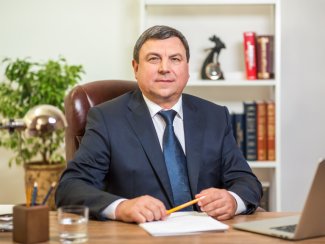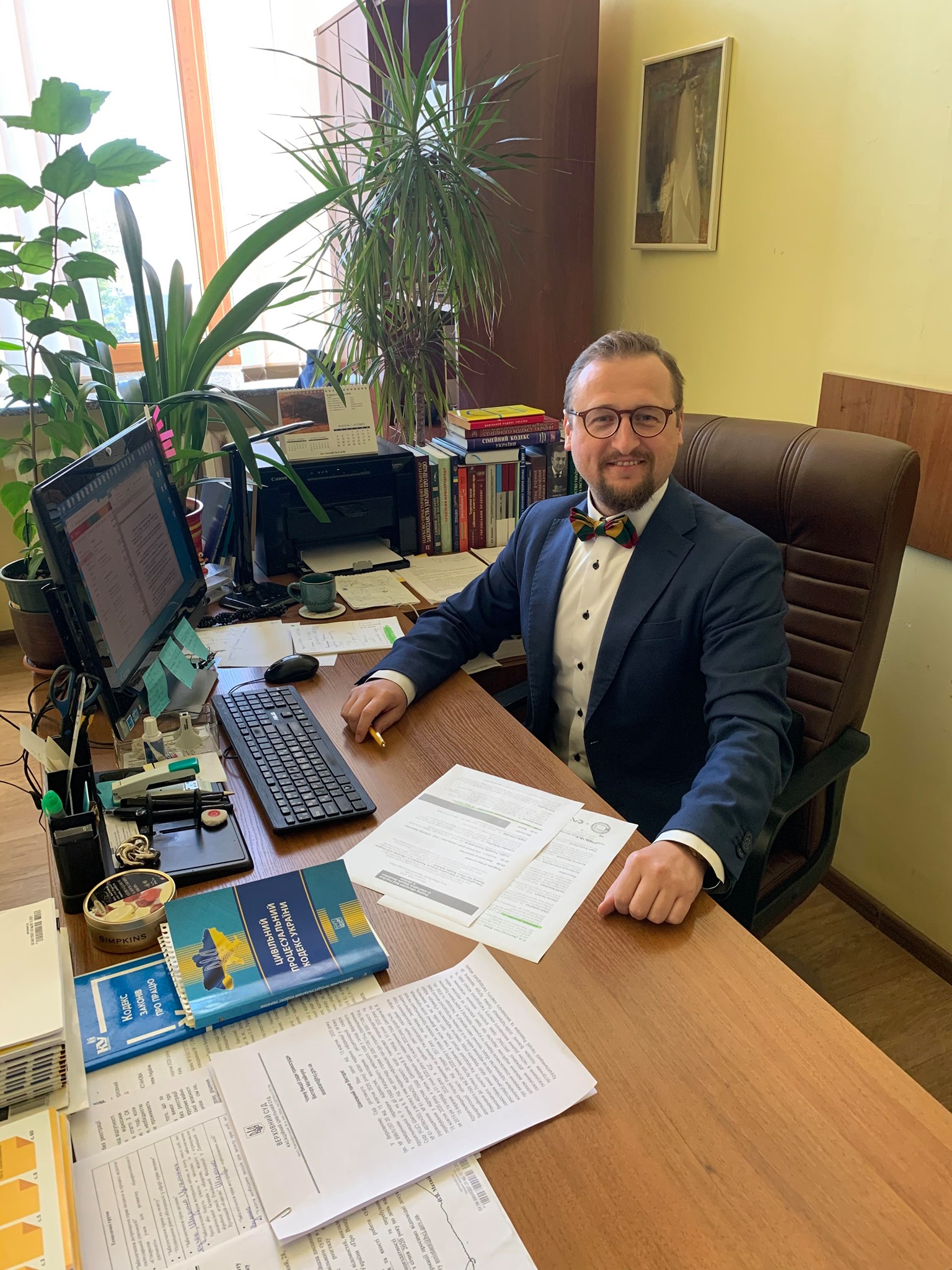Contact center of the Ukrainian Judiciary 044 207-35-46

The EU Pravo-Justice Project, the Supreme Court and the Permanent Bureau of the Hague Conference on Private International Law have launched a series of seminars entitled "Improving the Effective Use of the Instruments of the Hague Conference on Private International Law". The first seminar in the series took place on October 7, 2021.
The co-moderator of the event was the Deputy Head of the Department for Analytical and Legal Work - Head of the Department for Legal Work (IV) of the Supreme Court LL.D. Mykhailo Shumylo. He noted that since Ukraine was already a party to a number of Hague conventions, and also signed and ratified new ones, the legal community had no less work to do, and there were more challenges to the correct interpretation and application of convention norms.
The first workshop focused on practical issues and best practices in the application of two conventions: the Hague Convention on the Service Abroad of Judicial and Extrajudicial Documents in Civil or Commercial Matters (1965) and the Hague Convention on the Taking of Evidence Abroad in Civil or Commercial Matters (1970).
Welcoming the participants of the event, the President of the Civil Cassation Court within the Supreme Court Borys Hulko said that it was the Supreme Court that had initiated such a series of seminars, since one of the tasks of the Supreme Court was to ensure the consistency and unity of judicial practice. "Given the specific nature of disputes involving a foreign element, there is an objective need for all of us to raise awareness of the specificities of the application of such conventions. Therefore, this event, as well as future ones, will contribute to the formation of a unified approach to the interpretation of the norms of conventions by judges of all instances," the President of the Civil Cassation Court within the Supreme Court is convinced.
At the same time, Borys Hulko thanked the EU Pravo-Justice Project for supporting the initiative of the Supreme Court to hold such events and establish contacts with the Permanent Bureau of the Hague Conference on Private International Law (The Hague).
Among other things, it was said at the event that the Hague Convention on the Service Abroad of Judicial and Extrajudicial Documents in Civil or Commercial Matters (the Convention) provides for several communication channels, and the fundamental idea for establishing these channels was to make the procedure for fulfilling the request for the service of documents faster and speed up the consideration of cases with a foreign element.
In accordance with this Convention, each contracting state shall designate a central authority which will undertake to receive requests for service of documents coming from other contracting states. However, in Germany, for example, there is no central authority at the federal level, instead there are 16 central authorities in each federal land. In order to send a request to Germany, it is first necessary to find out in which land the addressee is located or lives, respectively, the central authority of this land is the contact office. However, if a person has any doubts, he/she can contact the Federal Ministry of Justice of Germany, and they will provide guidance and advice on where to go.
Interestingly, about half of the signatory states to the Convention do not apply paragraph "a" of Art. 10, such reservations were also made by Ukraine, which provides for the possibility of sending court documents directly by mail to persons abroad. Therefore, before resorting to this tool, it is necessary to make sure whether this tool is used by this or that country and that such a possibility is provided for by national legislation.
The participants of the seminar also discussed the terms of processing requests by central authorities - in different countries these terms differ. Mykhailo Shumylo noted that the issue was very important for the Supreme Court, as sometimes it takes two or three months for a response to a request, and sometimes as much as six. “This is extremely important, because the consideration of the case in court must take place within a reasonable time frame, and the procedure for notifying parties abroad makes it difficult to comply with this principle,” he said.

Mykhailo Shumylo also advised to carefully study all the reservations that one or another country had expressed regarding the content of the Convention and the language of the appeals. For example, while requests can be sent to the majority of member-states in the language of the Convention, one can send requests to Japan only in Japanese.
The second part of the event was devoted to the discussion of the Hague Convention on the Taking of Evidence Abroad in Civil or Commercial Matters, as well as the means to facilitate the application of the conventions through the use of information technology. The widest possible use of modern information technologies will save time, effort and money.
International experts Niels Schroeder (Germany) and Katerina Ossenova (USA) emphasized that the Conventions were formulated in a technologically neutral language, i.e. they did not restrict member-states from using the usual channels of communication, such as sending by mail. However, for this there must be appropriate changes in national legislation that will make it possible.
At the end of the event Borys Hulko drew attention to the requirements of Art. 501 of the Civil Procedure Code of Ukraine, which determines the procedure for executing a letter of order from a foreign court to serve a summons or other documents. According to him, the design of this article requires improvement so that the terms of consideration of cases are not violated, because the order of a foreign court to serve a summons to the court or other documents must be carried out in court.
According to the President of the Civil Cassation Court within the Supreme Court, the relevant structural subdivision of the Ministry of Justice of Ukraine, and not the court, should deal with the service of a foreign court order to serve a summons or other documents.
Summing up, Mykhailo Shumylo spoke about the need to prepare draft amendments to the legislation in cooperation with the Ministry of Justice of Ukraine, which will help improve and optimize litigation with a foreign element and will significantly speed up the consideration of cases.
The video of the event can be found at the link: https://bit-ly.ru/FLgZ9.